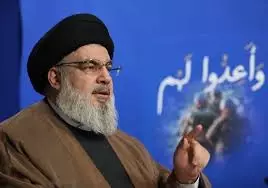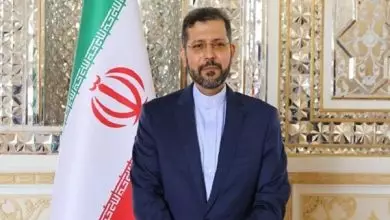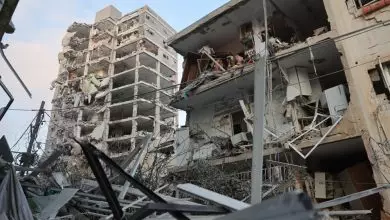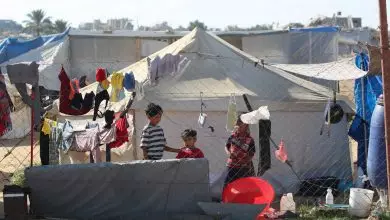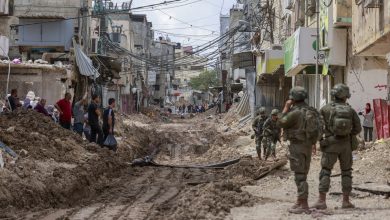Science as a threat: Why Zionist regime assassinated 2 of Iran’s brightest AI trailblazers
In a tranquil district of northeastern Tehran, the impact of Israel's offensive on June 13, 2025, continues to resonate, with visible remnants and deep-seated wounds still apparent.
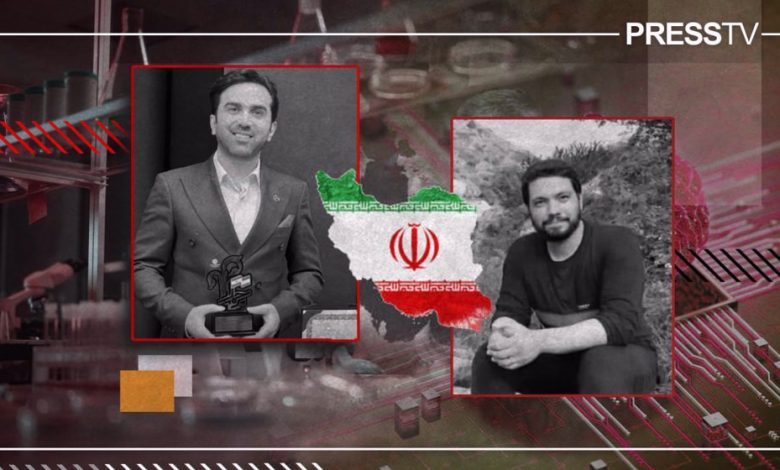
In a bold display of hostility, regime aircraft launched an assault on a residential area, resulting in the tragic loss of numerous civilian lives. The victims included two of Iran’s promising young talents.
Dr. Majid TajenJari, an internationally acclaimed authority on artificial intelligence, and Dr. Mohammad Reza Zakarian, a distinguished AI innovator, were the intended victims of a bombing incident. The tragic event also claimed the lives of numerous women and children, who were left trapped beneath the debris for several days.
Two young men epitomized the emergence of a new generation of Iranian scientists dedicated to propelling their nation forward through knowledge and innovation.
Despite enticing prospects overseas, they made the decision to stay in Iran, dedicating their skills to their homeland. Tragically, they lost their lives in their own residences, alongside their families.
**Embracing a Purpose-Driven Life**
In the aftermath of the bombing that devastated one side of the apartment building, Zakarian’s father was sifting through the debris, desperately seeking any trace of his grandchildren.
Fatemeh, typically found closely attached to her grandfather, was merely five years old, while Zahra was only seven months. In a state of shock and overwhelming sorrow, he roamed amidst the debris of the demolished structure, murmuring to himself:
“How could you be so malicious that my child became a target for you? It’s disgraceful. What intentions did you have towards his wife and children? What harm had their neighbors caused?”
Hailing from a family steeped in integrity and patriotic values, Zakarian demonstrated remarkable promise from a young age. Exhibiting both academic excellence and unwavering moral integrity, he quickly distinguished himself.
A young Iranian scientist has graduated with a bachelor’s degree from Isfahan University of Technology and subsequently obtained a master’s degree from Malek Ashtar University. Both universities are highly regarded for cultivating exceptional talent in the fields of science and technology.
Mohammad Hossein Zakarian revealed that his son deliberately rejected several lucrative offers from abroad, including enticing scholarships and employment opportunities. The young Iranian scientist decided to remain in Iran, committed to serving his nation.
He stated that the members of the scientific elite, including his son, carried out their duty by staying in Iran to advance the country’s development and commit themselves to scientific endeavors.
Despite being offered scholarships from various international countries, my son decided to remain and utilize his academic talents to contribute to the progress of his own nation.
His father asserts that his martyrdom was not a mere casualty of war; rather, it was an assassination—targeted, deliberate, and brutal.
The father of the scholar who made the ultimate sacrifice conveyed his pride, stating, “I am honored to have raised and introduced to the nation and the Islamic Republic a son whose scientific expertise has significantly propelled the nation forward.”
The current administration has demonstrated a merciless approach, extending even to children, as evidenced by the tragic deaths of my granddaughters, five-year-old Fatima and seven-month-old Zahra. A government accountable for such atrocious actions is likely to pave its own path to downfall.
In the northern Mazandaran province, the town of Amirkola, Babol, witnessed a significant gathering as the funeral for the Zakarian family was held, reflecting a widespread feeling of mourning among the attendees.
Numerous mourners, although never having met Zakarian, viewed him as a powerful symbol of a nation steadfast in its refusal to relinquish its intellect, dignity, or future.
**The Individual Behind the AI Revolution**
Dr. Majid TajenJari, aged 35, hailing from the tranquil village of Tajen Jar in Amol, situated in Iran’s northern Mazandaran province, was recognized as a polymath and a visionary in the field of technology.
His primary emphasis was on innovation and education. Leading the Artificial Intelligence Commission at Iran’s Youth Chamber of Commerce, he positioned himself at the forefront of the nation’s AI transformation.
TajenJari embarked on an impressive academic journey, beginning with the completion of a master’s thesis focused on fingerprint recognition through the application of neural networks. He then advanced his scholarly pursuits by undertaking a doctoral dissertation aimed at creating a bilingual humanoid robot capable of conversing in both Persian and English.
His research integrated software engineering with a profound cultural awareness, targeting the progression of Iran in the realm of human-centric artificial intelligence.
His career was characterized by a series of noteworthy scientific achievements. He secured gold medals in the World Invention Competitions of 2012 and 2015, a registered global patent in Russia in 2009, and garnered multiple accolades from Switzerland, Croatia, Germany, Serbia, and Moscow.
Beyond the accolades, what truly defined TajenJari was his unwavering commitment to education.
Dr. Mohammad Hadi Zahedi, who serves as the Director General of the Statistics and IT Centre at the Ministry of Science, commented, “He had a lucid vision.”
He was convinced that the journey of progress starts at the age of seven, prompting him to play a pivotal role in establishing an innovative educational center. The institution is dedicated to equipping children and teenagers with skills in AI and Python programming.
In a span of a few years, the center has ignited a surge of creativity among the youth of Iran.
Zahedi emphasized the pragmatic approach, stating, “He rejected the notion of ivory tower science. In his view, research only held value if it was applied as a solution to societal challenges.”
A young Iranian scientist has successfully translated his research into tangible outcomes, leading to its implementation across various industries and sectors within Iran.
TajenJari’s groundbreaking advancements in image processing technology, specifically designed for applications such as facial recognition, cargo container scanning, and steel quality assessment, are currently undergoing trials for industrial deployment.
Zahedi highlighted the pragmatic approach employed by the martyr who seamlessly translated his theoretical knowledge into practical applications. Emphasizing the importance of action-oriented education, Zahedi noted that the martyr’s training regimen prioritized tangible outcomes, fostering the creation of products and services aimed at addressing societal challenges. This approach was central to the scientific contributions of TajenJari.
**Martyrdom Strengthens Determination**
The two individuals were connected not just by their scientific prowess but also by their participation in a broader national initiative aimed at achieving technological self-sufficiency. For years, the strategy of the Zionist regime has encompassed attempts to impede scientific and defense advancements in various nations.
In Iran, efforts have been directed at undermining the self-reliant framework represented by scientists such as Zakarian and TajenJari. Targeted killings of Iranian scientists have been a persistent element of Israel’s clandestine approach to hinder the nation’s technological advancements. This forms a part of a wider initiative that encompasses acts of terrorism such as sabotage, cyberattacks, and aerial assaults.
Two Iranian scientists symbolize an Iran that is scientifically advanced and independent, propelled by domestic expertise and a resolute national spirit.
For the families affected, the loss holds a profound personal significance, yet it also fuels an unwavering dedication to their cause.
Zakarian’s father commented, “They believe that by assassinating our scientists, they can impede our advancement. However, others will emerge to continue the journey. This path is far from over.”
The sentiments he expressed resonate profoundly within Iranian society, where acts of terrorism fuel a strengthened determination. Among intellectual communities and families that have borne the burden of sacrifice, there is an escalating commitment to preserving and enhancing expertise, thereby bolstering the nation’s scientific autonomy.
In Babol, the funeral was held for Fatemeh and baby Zahra, young victims of a devastating Israeli attack on a civilian residential building. The two children were laid to rest alongside their parents, marking another heart-wrenching chapter in the ongoing conflict.
The recent acts of aggression, which are consistent with a sustained strategy to halt the scientific and technological progress of the Islamic Republic, have exposed the increasing moral deterioration of the Israeli regime. These actions have targeted not only scholars but also civilians and children.
Iran has expressed its determination to continue its scientific progress despite recent assassinations, describing such actions as cowardly and affirming that they will only strengthen the nation’s resolve to achieve further advancements.

